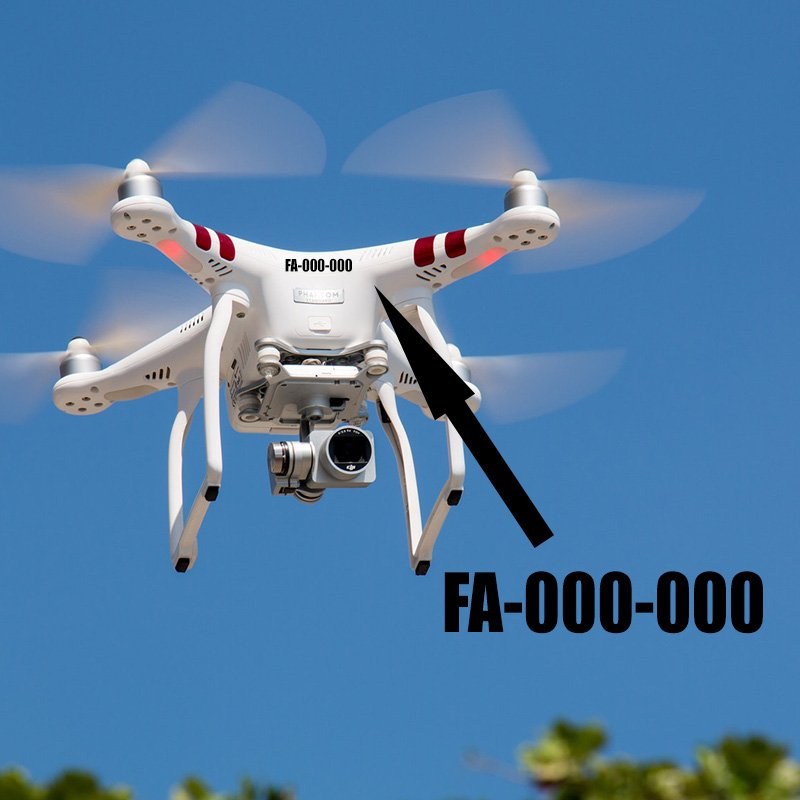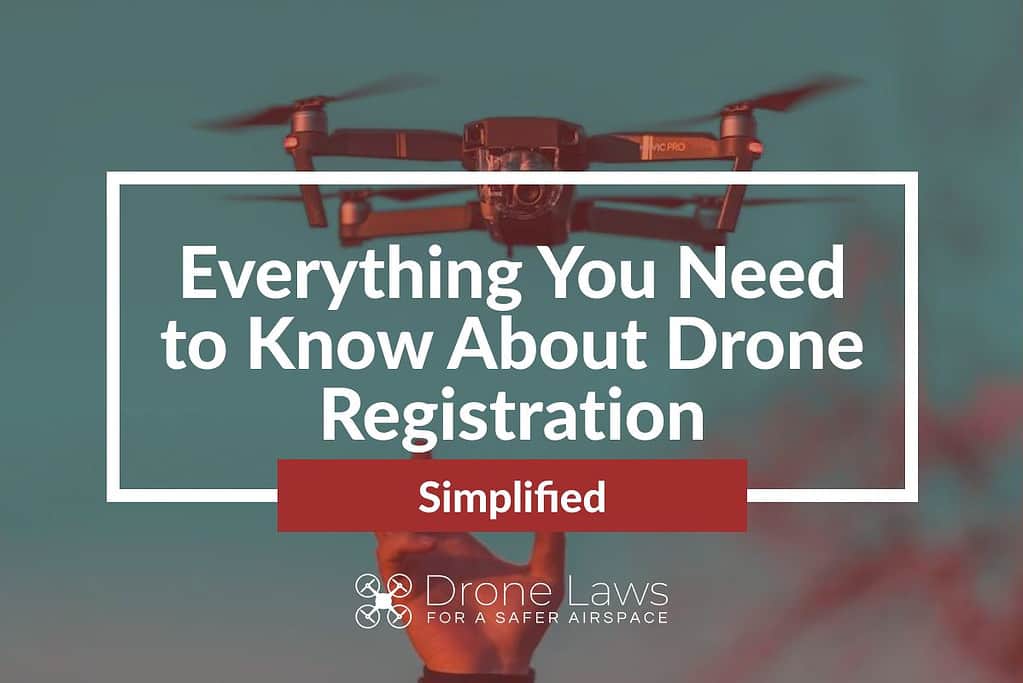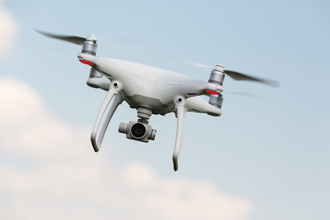Introduction to NC Drone License
Overview of Drone Licensing
Navigating the world of drones can often feel like taking off without knowing the lay of the land. If you’re like many drone enthusiasts in North Carolina, you might be considering obtaining your Drone License, specifically the Remote Pilot Certificate issued by the FAA. The licensing process ensures that you’re not just flying blind but are well-acquainted with federal regulations and best practices. Drone licensing primarily falls under the purview of the Federal Aviation Administration (FAA). The FAA has established regulations to promote the safe operation of drones in both recreational and commercial contexts. This means that whether you’re using your drone for fun—capturing stunning landscapes—or for business—like real estate photography—understanding the licensing process is crucial. Obtaining a drone license isn’t merely a formality; it’s a gateway to a world of opportunities. As drone usage becomes more widespread, having that license sets you apart from the crowd, demonstrating that you understand not only your equipment but also how to use it responsibly.
Importance of Obtaining a License
Why is obtaining a drone license so crucial? There are a few compelling reasons to consider, whether you’re a hobbyist or a professional:
- Legal Compliance: First and foremost, flying without a license could lead to hefty fines and legal repercussions. By securing your license, you’re demonstrating that you understand and comply with both federal and state regulations.
- Safety First:
- A licensed pilot is trained to recognize the potential risks associated with drone flight, ensuring safer operations.
- Understanding airspace rules, weather conditions, and emergency protocols can prevent accidents, protecting both you and the people around you.
- Increased Credibility:
- Having a licensed status enhances your credibility among clients if you’re pursuing drone services for commercial purposes. Unlike non-licensed competitors, you can confidently assure clients of your skills and knowledge.
- Many businesses require proof of a license before hiring drone operators, making it easier for you to secure jobs.
- Expanded Opportunities:
- Licensing is particularly beneficial if you wish to monetize your drone operation. Industries such as real estate, agriculture, and filmmaking are increasingly utilizing drones, and many require operators to possess a valid license.
- In fact, commercial drone pilots are among the fastest-growing job categories today. Statistics show a growing demand in sectors like aerial surveying, drone delivery services, and even agricultural inspections that are looking for certified operators.
- Access to Additional Resources:
- By completing the licensing process, you gain access to a wealth of knowledge and resources. The study materials offered during your preparation will cover essential topics, including interpreting aeronautical charts and understanding flight operations, enhancing your overall flying skills.
- Networking Opportunities:
- The drone community is vibrant and full of opportunities. By joining clubs, attending workshops, or participating in seminars geared towards licensed drone pilots, you expand your network and connect with professionals who share your passion.
Interestingly, my journey into the drone world began as a hobbyist pilot. Once I decided to pursue drone photography for my local real estate market, I quickly realized how beneficial (and necessary) obtaining a license was. Not only did it open new doors for me professionally, but it also deepened my understanding of safe flying practices, which served me well over the years. In summary, obtaining your NC Drone License is more than just a bureaucratic step; it’s about ensuring safety, adhering to regulations, and maximizing your flying potential, whether for fun or profit. As you venture into this exciting field, keep in mind that your license is a badge of professionalism and a commitment to responsible flying.

Federal Regulations for Drones
FAA Guidelines
As you dive deeper into the world of drone operation, understanding Federal Aviation Administration (FAA) guidelines is paramount. These regulations are designed to ensure that both hobbyists and commercial operators fly their drones safely and responsibly. Here’s a breakdown of the essential FAA guidelines that every drone pilot should be aware of:
- Flying Altitude:
- The FAA typically restricts drone flights to a maximum altitude of 400 feet above ground level.
- Flying above this height can put you in conflict with manned aircraft and breach safety protocols.
- No-Fly Zones:
- Certain areas are designated as no-fly zones for drones, including airports, military bases, and populated urban regions.
- Make it a habit to check the FAA’s B4UFLY app or other mapping tools before flight. It’s just like checking the weather before a hike!
- Visual Line of Sight (VLOS):
- You must keep your drone within your visual line of sight while flying.
- This guideline is crucial because it helps you maintain awareness of your surroundings and respond to any sudden obstacles.
- Pre-Flight Inspection:
- Conducting pre-flight checks is essential. This should include examining the drone’s hardware, checking battery levels, and ensuring all components are in working order.
- It’s much like checking your car before a long trip — a quick inspection can save you from potential accidents.
- Weather Conditions:
- The FAA advises against flying in adverse weather conditions such as high winds, rain, or fog.
- Always be aware of the forecast before heading out. Your drone may be capable, but nature is unpredictable!
These FAA guidelines are there to protect you and others in the airspace. By following these protocols, you contribute to a safer flying environment for everyone.
Registration Requirements
If you’re ready to take to the skies, one of your first tasks will be registering your drone with the FAA. Let’s break down what you need to know about the registration requirements to ensure you’re compliant:
- Who Needs to Register?
- If your drone weighs more than 0.55 pounds (250 grams) and less than 55 pounds, you need to register.
- Yes, even if you’re only using it for recreation — the FAA wants to know who’s flying what!
- Registration Process:
- The registration process is relatively straightforward and can be completed online through the FAA’s drone registration system.
- You’ll need to provide:
- Your name
- Your address
- An email address
- Your drone’s make and model
- Cost of Registration:
- The cost to register a drone is $5, which covers the registration for three years.
- Once you pay, you’ll receive a registration number, which you must affix to your drone. It’s essentially your drone’s ID tag.
- Renewing Your Registration:
- After three years, you need to renew your registration.
- It’s a simple process where you can update details and ensure that your drone remains compliant. Don’t let it slip; set a reminder for yourself.
- Unique Rules for Commercial Operators:
- If you intend to use your drone for commercial purposes, additional registration may be required under Part 107 guidelines.
- This includes obtaining a Remote Pilot Certificate along with operational compliance.
Personal anecdote alert! When I registered my first drone, I felt a mix of nervousness and excitement. Recognizing that my name was officially associated with my flying adventures made the experience feel legitimate and professional. After completing the registration, I proudly affixed the registration number on my drone, knowing I was one step closer to responsible flying. In conclusion, grasping the intricacies of FAA guidelines and registration requirements is essential for every drone pilot. By achieving compliance, you cultivate a safer flying experience, opening doors to new opportunities while ensuring you’re a responsible member of the drone community. Fly smart, fly safe! ✈️

NC State-Specific Drone Laws
Restrictions on Drone Usage
As you settle into your drone flying routine in North Carolina, it’s crucial to understand the specific restrictions that apply to drone usage within the state. While the FAA provides overarching guidelines, North Carolina has its own set of rules aimed at ensuring safety and privacy for its residents. Here’s what you need to keep in mind:
- Privacy Concerns:
- North Carolina law prohibits UAV operators from using drones to invade another person’s privacy.
- This means using your drone for surveillance or spying can land you in hot water. Always be respectful of other people’s privacy!
- Flying Over Private Property:
- You can legally fly over private property, but it’s courteous to inform property owners whenever possible.
- Some landowners might not appreciate a drone buzzing above their backyard, so communication can go a long way in avoiding conflicts.
- Distance from Emergency Operations:
- Drones must stay at least 500 feet away from emergency services, such as police or fire operations.
- Blocking emergency flights or interfering with first responders is a serious offense, and adherence to this rule is non-negotiable.
- Local Ordinances:
- Besides state laws, local municipalities may impose additional regulations on drone usage.
- It’s wise to check local guidelines, particularly if planning to fly in parks or urban areas. Each town might have its own set of dos and don’ts.
- No Flying in Certain Areas:
- Similar to FAA regulations, drones are prohibited in various state-designated areas, including state parks, government buildings, and the vicinity of prisons.
- Always do your homework on restricted areas before planning your flight.
As an example, I once planned a thrilling drone photography session at a beautiful local park, excited about showcasing its scenic views. Upon arrival, however, I discovered that the park had instituted its own restrictions on drone flights due to nesting birds. Had I not checked ahead, I could have run into significant trouble!
Licensing Process in North Carolina
Now that you’re familiar with the restrictions, let’s turn our attention to the licensing process specific to North Carolina. While the drive for commercial operation requires federal certification, local regulations may also request additional licensing or permits based on your intended use.
- Remote Pilot Certificate:
- As a starting point, you’ll need to acquire the Remote Pilot Certificate from the FAA, which is valid nationwide.
- This involves passing the FAA’s Aeronautical Knowledge Test, but variations in local practices are worth considering.
- State-Specific Licensing:
- North Carolina also requires operators of drones for commercial purposes to hold a business license.
- In case you’re starting a drone services business, check with local ordinances and the North Carolina Secretary of State’s Office for compliance.
- Insurance Requirements:
- While not mandated by state law, carrying liability insurance for your drone is highly encouraged, particularly if you’re operating commercially.
- It can provide peace of mind knowing you’re covered in case of accidents. Plus, clients often prefer insured operators!
- Online Resources:
- The North Carolina Department of Transportation (NCDOT) has information on drone regulations and resources for operators.
- Familiarizing yourself with this official content can smooth the process and keep you updated on any changes.
- Continuing Education:
- As a best practice, keeping yourself updated through workshops or professional drone organizations is beneficial.
- Not only does it ensure compliance, but you also enhance your flying skills and knowledge of state regulations.
After navigating through the licensing process myself, I found it to be a rewarding experience. The learning opportunities were immense, and I gained confidence in my flying capabilities which turned out to be not just regulatory but also an opening for creativity in my work! In summary, understanding the NC state-specific drone laws and the licensing process ensures that you’re not only flying responsibly but also making the most of your drone experience. Knowing the rules and requirements will enhance your flying adventures while keeping you compliant and safe. So, gear up and happy flying! 🚁

Eligibility Requirements for NC Drone License
Age and Citizenship Criteria
Before you take flight towards obtaining your NC Drone License, it’s vital to understand the eligibility requirements that lay the groundwork for your journey. The FAA sets specific standards regarding age and citizenship to ensure that only responsible individuals operate drones. Let’s take a closer look:
- Age Requirement:
- To apply for the Remote Pilot Certificate, you must be at least 16 years old.
- This age requirement signifies that the FAA expects applicants to have a mature understanding of aviation principles and safety protocols.
- Citizenship Criteria:
- The FAA mandates that all applicants must be U.S. citizens or legal residents.
- This means you need a valid Social Security Number or an Alien Registration Number. Hence, if you are a non-citizen, you might need to ensure you meet these residency requirements before applying.
- Health and Physical Requirements:
- Although specific medical examinations are not required for remote pilots, you must possess the mental capacity to operate a drone safely.
- If you have a medical condition that could impair your ability to fly safely, it would be wise to consult with a healthcare provider for guidance.
On a personal note, I remember the excitement I felt when I officially turned 16; I was finally eligible for my permit! This stage also reminded me of how responsible I had to be, understanding the weight of the laws surrounding drone operation.
Knowledge Test Preparation
Once you’ve checked off the age and citizenship boxes, it’s time to dive into preparing for the knowledge test. This examination is crucial—it ensures you understand the rules, regulations, and operational principles needed for safe drone flying. Here’s how you can prepare effectively:
- Study Resources:
- The FAA provides a comprehensive Remote Pilot – Small Unmanned Aircraft Systems Study Guide.
- Utilize online courses and resources from trusted organizations like the Academy of Model Aeronautics or the Drone Racing League. These materials cover essential topics you will encounter on the test.
- Key Topics to Focus On:
- Regulatory Environment: Understanding FAA regulations, local ordinances, and specific drone usage laws in North Carolina.
- Airspace Classification: Knowing the differences among Class A, B, C, D, and E airspace, as well as airspace restrictions.
- Weather Patterns: Understanding weather reports and how to assess weather conditions for flying.
- Emergency Procedures: Familiarity with dealing with in-flight emergencies and the required response protocols.
- Practice Tests:
- Take advantage of practice tests available online to get a feel for the exam format.
- This tip helped me tremendously! I remember taking multiple practice tests which helped build my confidence and familiarize me with the testing process.
- Study Groups:
- Consider forming a study group with fellow drone enthusiasts.
- Sharing knowledge and discussing topics helps in retention and understanding different perspectives on flying strategies.
- Flight Training:
- If possible, engage in hands-on flight training.
- Understanding the practical aspect of drone operation will improve your confidence and performance on the knowledge test.
- Scheduling Your Test:
- After you’ve diligently prepared, scheduling your test is the next step. Tests are administered at various FAA-approved knowledge testing centers.
- Be sure to bring proper identification and any necessary documentation with you on testing day.
As I prepared for my knowledge test, I found myself diving deep into the nuances of drone operation. I remember the thrill of passing that test—it marked a significant milestone and unlocked new adventures in drone flying! In conclusion, meeting age and citizenship requirements combined with thorough knowledge test preparation sets the stage for your success in obtaining your NC Drone License. Embracing this journey not only prepares you legally but also enriches your experience as a responsible drone pilot. So get ready for the skies, and happy flying! 🛩️

Steps to Obtain NC Drone License
Application Process
Now that you’ve familiarized yourself with the eligibility requirements and prepared for the knowledge test, it’s time to embark on the application process to obtain your NC Drone License. This process can seem daunting, but with a clear understanding of the steps, you’ll be well on your way to becoming a certified remote pilot.
- Complete the FAA’s STC Application:
- Start by filling out the FAA Form 8710-13 for the Remote Pilot Certificate.
- This online form will require your personal information, including your name, address, and Social Security number. Make sure all details are accurate to avoid any delays.
- Pass the Aeronautical Knowledge Test:
- Once you apply, schedule your Aeronautical Knowledge Test through an FAA-approved testing center.
- The test features multiple-choice questions focused on the regulations, airspace rules, weather, and drone operations you’ve studied.
- Provide Required Documentation:
- After passing the knowledge test, gather relevant documentation for your application:
- A copy of your test results
- Proof of age and citizenship (such as a driver’s license or passport)
- It’s helpful to keep these documents organized and easily accessible — you don’t want to scramble the day before!
- After passing the knowledge test, gather relevant documentation for your application:
- Submit the Application:
- With everything in order, submit your application to the FAA either online or through conventional mail.
- You can check the FAA’s website for specific instructions regarding your submission method.
- Wait for Processing:
- The processing time for an application can vary, so consider this a time for patience.
- If everything goes smoothly, you should receive your Remote Pilot Certificate via mail in about a couple of weeks.
Reflecting on my application experience, I remember scanning my documents multiple times to ensure I hadn’t missed anything. Finally submitting that application felt like checking an important item off my bucket list — the excitement was palpable!
Practical Flight Test Guidance
While the knowledge test focuses on theoretical knowledge, practical skills are just as crucial for a drone pilot. Although the FAA does not require a formal practical flight test for the Remote Pilot Certificate, demonstrating proficiency in actual drone operations is essential for anyone serious about flying drones, especially in commercial settings. Here’s how you can prepare:
- Hands-On Training:
- Practice flying your drone under various conditions — this is where you’ll learn to handle it with confidence.
- Find an open space where you’re comfortable practicing. I remember using a local field that wasn’t too crowded. It allowed me to familiarize myself with the controls without distractions.
- Simulations:
- There are various flight simulation programs that mimic real-world drone flying scenarios.
- Utilizing simulators can give you insight into potential obstacles and enhance your problem-solving skills without risk.
- Join a Local Drone Club:
- Connecting with other enthusiasts can provide invaluable guidance as well as access to training sessions.
- I joined a local drone club and found seasoned pilots more than willing to share tips and techniques, which really improved my flying ability.
- Understand Emergency Protocols:
- Know how to respond in emergencies, such as losing signal or dealing with adverse weather conditions.
- This understanding can significantly affect your safety and the integrity of your drone.
- Review the FAA’s Practical Flight Tips:
- The FAA offers resources that cover practical maneuvers and flight safety.
- Familiarizing yourself with these tips can give you a clearer picture of what to focus on when you’re flying.
- Document Your Flights:
- Keeping a log of your practice flights will help you track progress and identify areas for improvement.
- It can serve as a valuable tool when reflecting on what techniques worked well and which ones might require more practice.
In my own journey, practical flight training was the foundation that turned theoretical knowledge into practical proficiency. The more I flew, the more I gained confidence and refined my skills, preparing me for both recreational fun and commercial projects. In summary, the steps to obtain your NC Drone License involve an organized approach encompassing application submission, knowledge testing, and honing practical flying skills. By following these steps diligently, you position yourself for success as a certified remote pilot. So, gear up and enjoy the adventure that awaits you in the skies! 🌤️🚁

Benefits of Having a Drone License
Legal Protection
One of the primary benefits of obtaining a drone license is the legal protection it affords you as an operator. Navigating the legal landscape of drone operations can seem overwhelming, especially with regulations constantly evolving. Here’s why having your license makes a big difference:
- Compliance with Regulations:
- A drone license signifies that you are well-versed in both federal and state regulations. By adhering to these laws, you significantly reduce the risks of legal trouble.
- Operating without a license can lead to hefty fines and potential civil lawsuits. Being certified means you are equipped to follow industry standards.
- Liability Coverage:
- Many insurance companies provide better liability coverage for licensed drone operators.
- Therefore, if something goes wrong during a flight — like an accidental collision — having a license can bolster your case when handling claims.
- Credibility in Disputes:
- If you ever find yourself in a situation where a neighbor or local authority disputes your right to fly, being licensed can work in your favor.
- It shows you’ve invested time in understanding and adhering to regulations, establishing credibility as a responsible operator.
Going back to my experiences, I once faced a neighbor who wasn’t thrilled about my drone photography sessions. When I mentioned that I was licensed and understood the regulations, it provided a sense of legitimacy and helped diffuse tension. My license became a tool for establishing boundaries and trust.
- Knowledge of Local Laws:
- Most drone licenses require a fundamental understanding of local laws and regulations, not just federal guidelines. This knowledge is invaluable and ensures that you are fully compliant with any rules specific to North Carolina or your local area.
- Reporting Incidents:
- Licensed pilots often have a better grasp of how to report accidents or incidents to the proper authorities. This proactive approach can safeguard you, ensuring that you are seen as responsible and compliant.
Increased Job Opportunities
Beyond the legal protection, another significant benefit of having a drone license is the increase in job opportunities it brings. As industries continue to expand their use of drone technology, the demand for licensed operators is on the rise. Here’s why your license can open doors:
- Access to Commercial Employment:
- Many companies across various sectors, including real estate, agriculture, film production, and public safety, require licensed drone operators for professional work.
- With your license, you can position yourself as a candidate for diverse job opportunities, ranging from aerial photography to surveying jobs.
- Diverse Applications for Skill Sets:
- Drones are being utilized in many fields, including agriculture (for crop monitoring), construction (for site surveys), and even journalism (for news coverage).
- By having a drone license, you demonstrate valuable skills that can be applied in multiple industries.
- Freelancing Opportunities:
- Many licensed drone pilots choose to freelance, offering services to individuals or businesses needing aerial photography, inspections, or mapping.
- This flexibility allows you to set your own hours and work on projects that interest you, turning a hobby into a potential side business.
- Building a Portfolio:
- With each project you take on, you can continually build your portfolio, showcasing your capabilities and experience to attract more clients.
- Potential customers often prefer hiring those with a license for assurance of professionalism and adherence to safety protocols.
- Networking and Community:
- Joining drone pilot groups or associations can help you connect with like-minded individuals and potentially lead to job referrals or collaborations.
- My personal experience with drone clubs opened doors to partnerships I would have otherwise missed, highlighting the importance of being part of the drone community.
In summary, obtaining your drone license provides not only essential legal protection but also a range of job opportunities that can enhance your career. By investing in your certification, you’re positioning yourself as a responsible and capable operator, ready to take advantage of all that the booming drone industry has to offer. So, let your dreams take flight — both in the skies and in your career! 🛩️✨

Renewal and Upkeep of NC Drone License
Renewal Timeline
Once you’ve successfully obtained your NC Drone License, it’s crucial to keep in mind that this is not a “set it and forget it” situation. Just like any skill, staying current with regulations and practices is essential for a responsible drone pilot. Here’s what you need to know about the renewal timeline for your license:
- Expiration Period:
- The Remote Pilot Certificate issued by the FAA does not have an expiration date, but it’s essential to maintain your currency by staying informed on any changes in regulations and best practices.
- Furthermore, while the certificate itself remains valid, you must still keep your skills sharp.
- Recurrent Knowledge Testing:
- Every two years, you’re required to complete a recurrent knowledge test. This ensures that you are updated on the latest FAA regulations, changing airspace rules, and safe operational practices.
- Many pilots I know set a reminder in their calendars six months before the two-year mark to start their preparation. It can be quite helpful to avoid a last-minute scramble.
- Staying Informed:
- The FAA may also update regulations or introduce new best practices. To make the renewal process smoother, it’s prudent to regularly follow the FAA’s website or subscribe to newsletters discussing updates in drone legislation.
- By staying informed, you not only remain compliant but also enhance your credibility in the community.
- Documentation Preparation:
- Before taking the test, gather all relevant documents and your flight logbook if applicable. Being organized will reduce your stress when the time comes to renew.
- I found a checklist helpful, ensuring every detail was accounted for, which alleviated the anxiety of potential mishaps right before my exam.
Continuing Education Requirements
In addition to the renewal timeline, ongoing education plays a crucial role in maintaining your expertise as a drone operator. Just like other fields, drone piloting evolves quickly, and it’s important to adapt. Here are some continuing education requirements and opportunities you should consider:
- Self-Directed Learning:
- Many pilots opt for self-directed learning by taking courses from recognized platforms or attending workshops focused on drone operation.
- Whether it’s learning about new technology, mastering new maneuvers, or exploring advanced aerial photography techniques, self-directed education keeps your skills fresh.
- Formal Training Programs:
- Various organizations offer additional certification programs or specialized courses that go beyond the basics.
- Some programs focus on niche areas, like drone inspections or cinematography, allowing you to expand your expertise.
- Participate in Workshops and Meetups:
- Engaging with your local drone community through workshops and meetups can provide valuable insights.
- Many community members share their experiences and techniques, providing an informal education that can be incredibly valuable. Personally, I attended a workshop where I learned about optimizing drone battery efficiency — tips that significantly improved my flight time.
- Online Courses and Webinars:
- Online platforms like Udemy or Coursera offer courses specifically tailored for drone pilots. Additionally, many organizations host webinars discussing the latest trends, regulations, or technologies.
- These courses can be a fantastic way to refresh your knowledge and even acquire new skills from the comfort of your home.
- Involvement in the Aviation Community:
- Consider joining associations such as the Academy of Model Aeronautics or other local drone clubs.
- These organizations not only provide resources but also often organize education-focused events, competitions, and networking opportunities. I met some of my best connections through these groups, which eventually led to collaborative projects.
In wrapping up, keeping your NC Drone License renewed and up-to-date is a proactive way to ensure you remain at the top of your game. By staying committed to ongoing education and adhering to the renewal timeline, you’ll not only protect your certification but also position yourself as an informed and skilled drone operator in a rapidly evolving field. Embrace the learning journey, and keep soaring to new heights! 🛩️📚✨



